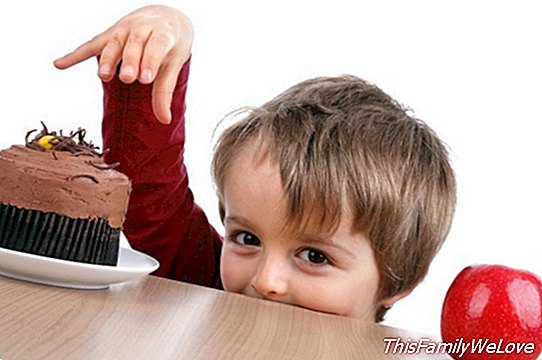Children inherit the tendency to eat lower certain emotions

Eating when you are sad or nervous is a trend that is present in many people. An answer to situations of stress and that makes young people ingest more foods, causing alterations in their weight. Where does this custom come from? Why do we use food to calm these alterations?
The answer could be in the genetic code, in the inheritance that parents leave their children in the DNA. This was highlighted by the study carried out jointly by the University of Science and Technology of Norway and King's College of London and the universities of London and Leeds. A work published in Child Development and that throws a little light on this tendency to eat more in situations of stress.
Foods not recommended
Those responsible for this work explained that it is very important to find the origin of this emotional intake to prevent possible disorders food. According to the authors of this research, the products that are consumed in response to a stress or nervousness situation are not recommended: ice cream, junk food, sweets, etc.
Increase the intake of these products in a short space of time supposes a sudden gain of kilos, and when this practice is abandoned the low one returns to repeat itself with the same speed. To stop this trend, we must go back to the origins, to know why young people eat more when they go through a period of stress or more nervousness.
In this investigation, the cases of 801 children to whom different evaluations were made at 4, 6, 8 and 10 years. In this follow-up, their habitual feeding was monitored and that which occurred when they went through stress situations. The objective was to observe if in these processes there was an increase in meals and what was generating this emotional response.
In this study, parents were also included so that they responded to questionnaires in which they described the emotional state of their children and if they observed that when they were sad or more stressed, they resorted to food to calm these sensations. Around 65% of the children participating in this study ate more when they went through these situations.
Double origin
After collecting the data of this investigation, the authors found that the increase of food in times of stress usually had a double origin in children. On the one hand, the aforementioned genetic origin. Those children whose parents used this method to lower their stress levels. Although another explanation was also found after that work.
The parents were also the ones who usually offered more food to their children at times when they were more stressed. These progenitors unconsciously they increased the amount of food in their offspring with the intention of calming them in these situations. This generated a tendency that made the child understand that to reduce their tension, they should eat more.
These authors propose that parents monitor their behavior When your children come home sad or nervous and act differently. Instead of offering a ration of food, better a hug or take a step to reduce the tension. It should not be taught that to calm down, food is the answer.
Damián Montero




